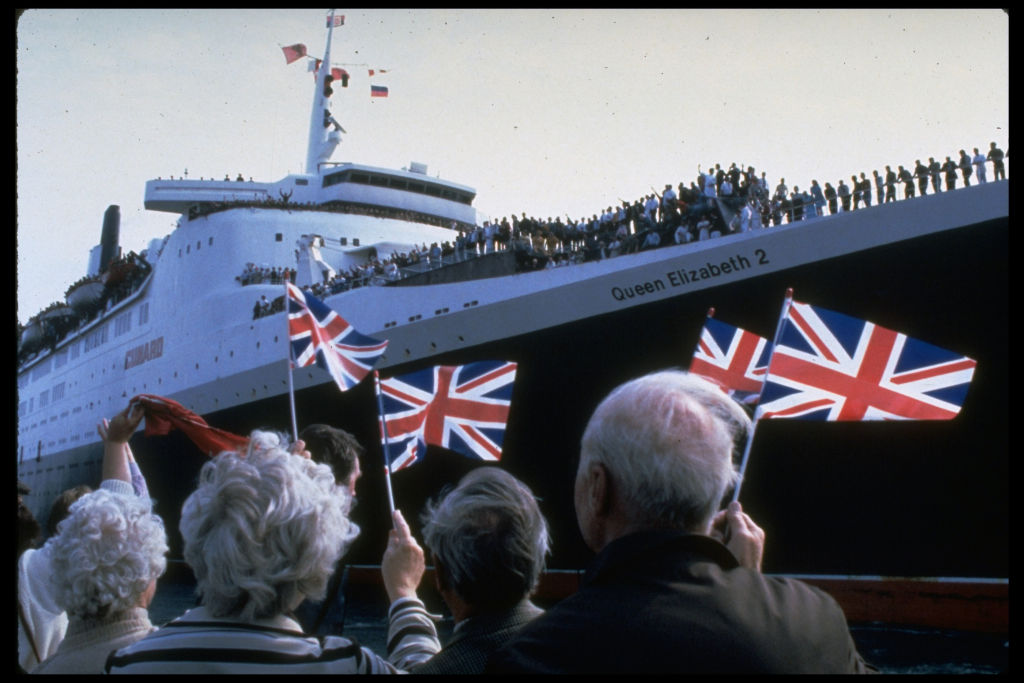
Get the latest financial news, insights and expert analysis from our award-winning MoneyWeek team, to help you understand what really matters when it comes to your finances.
You are now subscribed
Your newsletter sign-up was successful
Want to add more newsletters?

Twice daily
MoneyWeek
Get the latest financial news, insights and expert analysis from our award-winning MoneyWeek team, to help you understand what really matters when it comes to your finances.

Four times a week
Look After My Bills
Sign up to our free money-saving newsletter, filled with the latest news and expert advice to help you find the best tips and deals for managing your bills. Start saving today!
The Falkland Islands were first settled by the French in 1764 – Louis Antoine de Bougainville established a settlement there. The British turned up some time later, but left in 1774. They did leave a note saying not to touch them, however, because they belonged to King George.
By the time the British did return in 1833, Argentina had claimed the islands, and had stationed a garrison there to back this up. But they were booted out, and the islands have been in British hands ever since.
Well, apart from 74 days in 1982.
MoneyWeek
Subscribe to MoneyWeek today and get your first six magazine issues absolutely FREE

Sign up to Money Morning
Don't miss the latest investment and personal finances news, market analysis, plus money-saving tips with our free twice-daily newsletter
Don't miss the latest investment and personal finances news, market analysis, plus money-saving tips with our free twice-daily newsletter
In the 1980s, Argentina was having a few political and economic problems. The 1976 coup had left a military junta in charge. But by the early '80s, it was becoming increasingly unpopular, with a collapsing economy, rampant inflation, and government death squads “disappearing” thousands of political opponents.
To divert the public's attention from all the unpleasantness, General Leopoldo Galtieri decided to whip up a bit of nationalistic fervour by reclaiming the “Malvinas” for the motherland.
And so, on 2 April 1982, 3,000 Argentinian troops landed, quickly put an end to the resistance of the 80 or so Royal Marines stationed there, and raised the Argentinian flag over Government House.
But if Argentina thought Britain would just give up its remote windswept possession 8,000 miles away, they were wrong. Mrs Thatcher, her own popularity waning, decided to fight back.
A naval task force was dispatched within days. Vulcan bombers flew raids from Ascension Island, 4,000 miles away, in an attempt to put the Port Stanley airport out of action. Harrier jump jets played a starring role. Foreign correspondents made their names.
The bitter war lasted just ten weeks. By 14 June, it was all over – Britain had retaken the islands. Over 900 people were dead.
Get the latest financial news, insights and expert analysis from our award-winning MoneyWeek team, to help you understand what really matters when it comes to your finances.

-
 Should you buy an active ETF?
Should you buy an active ETF?ETFs are often mischaracterised as passive products, but they can be a convenient way to add active management to your portfolio
-
 Power up your pension before 5 April – easy ways to save before the tax year end
Power up your pension before 5 April – easy ways to save before the tax year endWith the end of the tax year looming, pension savers currently have a window to review and maximise what’s going into their retirement funds – we look at how
